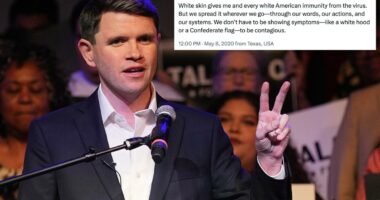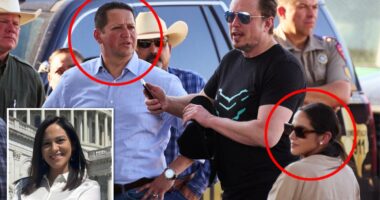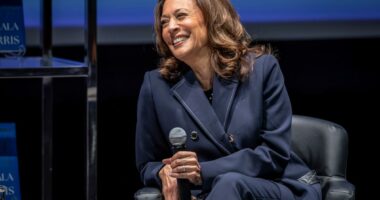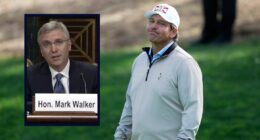Share this @internewscast.com
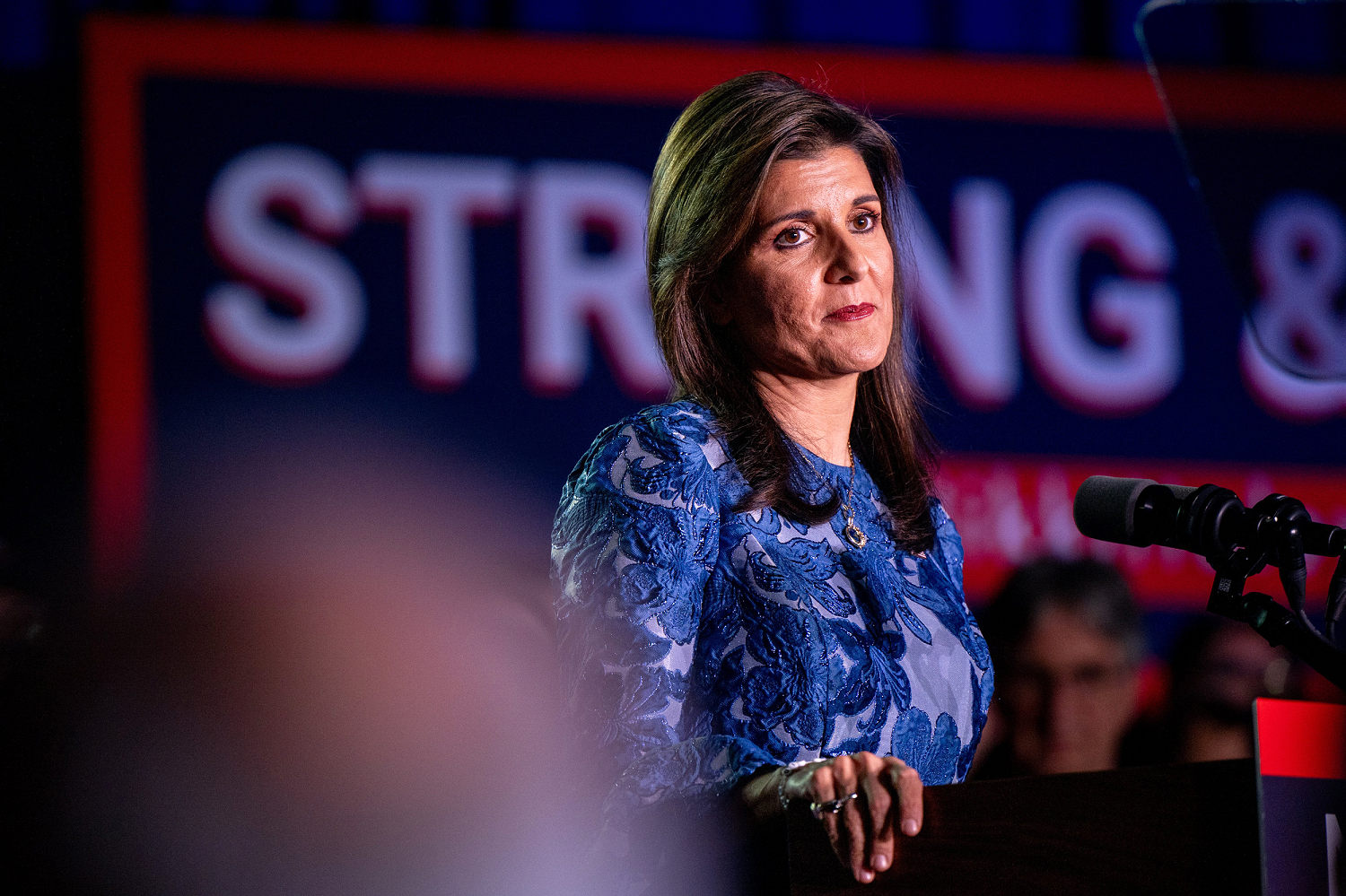
Nikki Haley faced no major challenger Tuesday in Nevada’s presidential primary.
She still lost, according to NBC News projections.
Nevada voters in the state-run primary had a choice to reject all the candidates on the ballot, and they did just that — with more people choosing to vote for “none of these candidates” than for Haley.
It was a stinging rebuke of the former ambassador to the United Nations and South Carolina governor — and one that some party leaders had encouraged. The outcome in Nevada was Haley’s third consecutive loss in an early state primary contest.
Former President Donald Trump, far and away the front-runner for the Republican nomination, was not on the same ballot as Haley because he is set to compete in a party-run caucuses on Thursday.
Even if Haley had won the primary, it wouldn’t have put her any closer to the GOP nomination because she wouldn’t have received any delegates. The state Republican Party decided that only candidates who take part in the caucuses can win delegates.
Trump is the only candidate set to participate in Thursday’s caucuses, putting him on a path to claim all of Nevada’s 26 delegates.
However, Haley was poised to draw some positive headlines if she won more overall votes in the primary than Trump received in the caucuses, a potential bump in return for no investment. But in the end, her lack of investment in the state showed. Haley visited the state only once since May and has repeatedly shrugged it off as inconsequential.
Haley said she decided not to compete in the caucuses because she believes the Nevada Republican Party is in the tank for Trump. Top party leaders have been indicted on allegations that they acted as false electors for Trump in the 2020 race. GOP Party Chair Michael McDonald and Vice Chair Jim DeGraffenreid also had their cellphones seized and both testified before a grand jury in the federal investigation into Trump’s attempt to overturn the 2020 election.
“We have not spent a dime nor an ounce of energy on Nevada,” Haley campaign manager Betsy Ankney said in a media call on Monday. “We aren’t going to pay $55,000 to a Trump entity to participate in a process that is rigged for Trump. Nevada is not and has never been our focus.”
The Nevada outcome for Haley comes after she placed second in New Hampshire and third in Iowa. She is polling far behind Trump in the next early state on the calendar, her home state of South Carolina, but her campaign insists she still has a path to the nomination. Haley has said that to continue, her goal is to do better in South Carolina on Feb. 24 than in New Hampshire, where she notched 43% of the vote.
The double-barreled nominating contests in Nevada sparked confusion among voters, thousands of whom called state officials and local party leaders asking why Trump wasn’t on the state primary ballot they received in the mail.
Nevada once exclusively used caucuses for its presidential elections. But in 2021, the Democratic-led Legislature changed the law so that the state instead held a primary election, which included early voting, and the opportunity to vote by mail. The Nevada GOP insisted on holding a caucuses apart from the state-run election, saying it wanted to control its own contest, using its own rules. The party dictated that candidates were not allowed to compete in both elections and only those competing in the caucuses could win delegates.
Haley wasn’t alone in bypassing the caucuses. Former Vice President Mike Pence and South Carolina Sen. Tim Scott had also filed to run in the state-run GOP primary before they dropped out of the race. Florida Gov. Ron DeSantis’ former campaign and the super PAC that was backing him complained the Nevada GOP held biases toward Trump but chose to compete in the caucuses before dropping out just before January’s New Hampshire primary.
